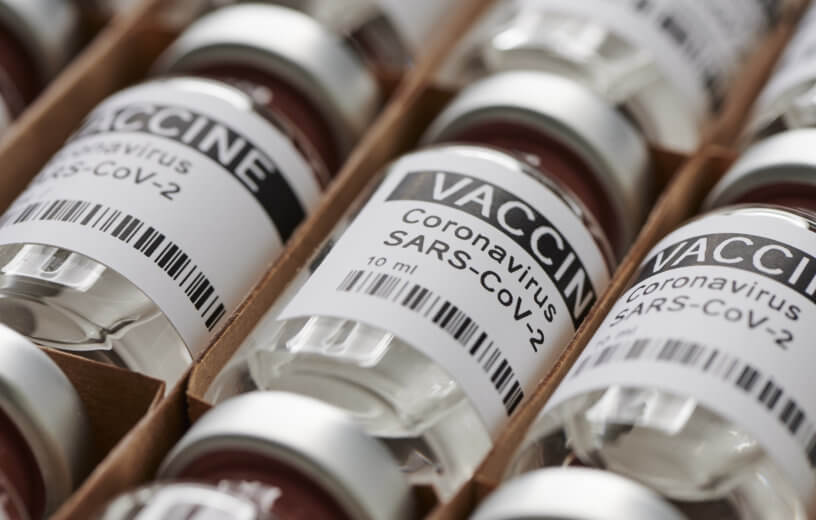WASHINGTON — As the famous quote goes, “A lie gets halfway around the world before the truth has a chance to get its pants on.” In the digital age, misinformation and conspiracy theories reach millions of people before social media platforms remove them from view. With incorrect information about the COVID-19 vaccines running rampant online, many may think there are countless people spreading wild claims about the pandemic. However, just like a game of “telephone,” a new report finds these falsehoods start with one person — or in this case, a dozen.
Researchers from the Center for Countering Digital Hate (CCDH) and Anti-Vax Watch say just 12 people or organizations are responsible for circulating nearly two-thirds of the anti-vaccine content the world sees on social media. Moreover, despite their promises to remove accounts and posts spreading COVID misinformation, the study finds social media CEOs have not taken action against these individuals.
“Disinformation has become a direct threat to public health,” says CCDH CEO Imran Ahmed in a media release. “In the midst of a global pandemic, the Anti-Vaccine Industry has executed a targeted campaign to mislead Americans about the safety of the COVID-19 vaccines. Social media is enabling anti-vaxxers to recruit millions of Americans and indoctrinate them with fear and doubt. If Big Tech companies don’t act now, the pandemic will be prolonged, and more lives will be lost.”
Study authors analyzed anti-vaccine posts shared on Facebook and Twitter over 812,000 times between Feb. 1 and March 16, 2021. The results uncovered that 65 percent of this material comes from 12 of the most prominent anti-vaccine voices today. This is a group which includes entrepreneurs, physicians, and even a member of the fabled Kennedy political family.
Social media still not cracking down on COVID misinformation
According to the researchers, “The Disinformation Dozen” includes noted anti-vaxxer Robert F. Kennedy, Jr., entrepreneurs Joseph Mercola, Ty and Charlene Bollinger, and Kelly Brogan, and physicians Sherri Tenpenny, Rashid Buttar, and Christiane Northrup. Also making CCDH’s list are influential social media figures Rizza Islam, Erin Elizabeth, Sayer Ji, Ben Tapper, and Kevin Jenkins.
On Facebook alone, the report claims this group is responsible for 73 percent of the platform’s anti-vax content. Despite this and the pledge to remove unverified claims and misinformation, like in the case of former President Trump, researchers find “The Disinformation Dozen” has been largely untouched by the social media censors. In fact, as of April 25, 10 of the 12 were still on Facebook and Twitter. Nine still had active accounts on Instagram.
“Living in full view of the public on the internet are a small group of individuals who do not have relevant medical expertise and have their own pockets to line, who are abusing social media platforms to misrepresent the threat of COVID and spread misinformation about the safety of vaccines,” Ahmed claims.
“According to our recent report, anti-vaccine activists on Facebook, YouTube, Instagram and Twitter reach more than 59 million followers, making these the largest and most important social media platforms for anti-vaxxers.”
Are anti-vaccine posts leading to lower vaccination rates?
This is not the first study to find COVID vaccine conspiracy theories online. Previous researchers have suggested that the widespread sharing of COVID misinformation is leading to falling vaccination rates during the pandemic. Other reports have also discovered that suspending or slowing the rollout of COVID vaccines over fears they cause side-effects actually leads to more deaths from the virus.
CCDH researchers focused their recommendations on what social media can do to curb the potential harm of misinformation. They’re urging these platforms to establish a clear limit on the number of misleading claims accounts can post before removal. They also suggest displaying “corrective posts” to users who encounter misleading claims online.
Since the report, more these social media accounts have reportedly been banned or restricted. However, others are continuing to operate without any restrictions on what they can post or claim.
The findings appear in the CCDH report The Disinformation Dozen: Why Platforms Must Act On Twelve Leading Online Anti-Vaxxers.
